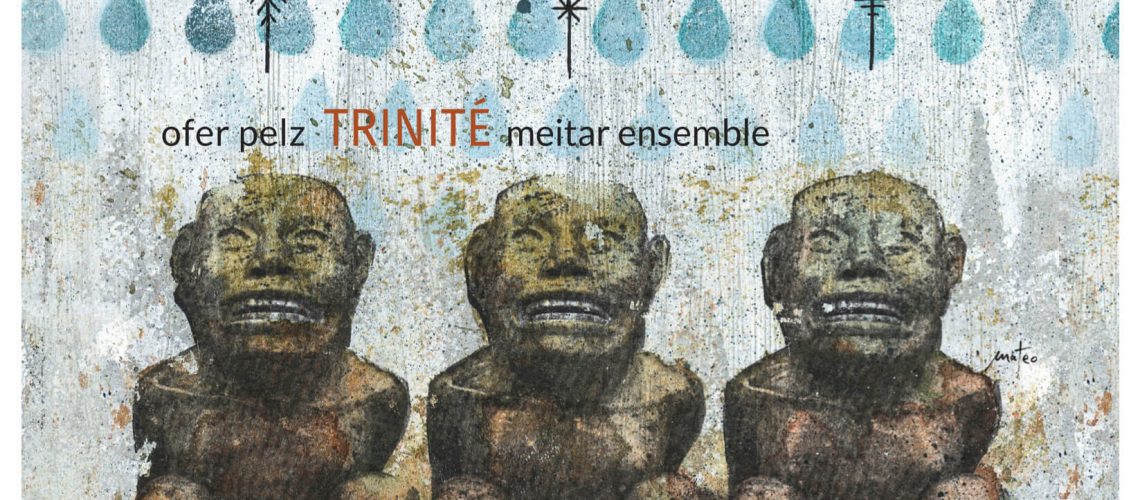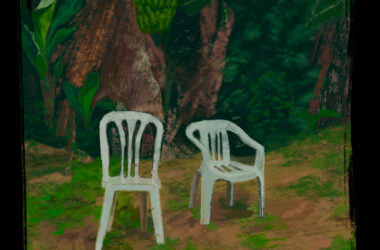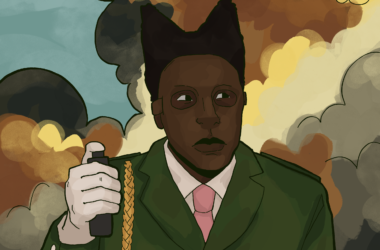Composers have experimented with the art of musical composition for centuries, but rarely have they gone so far as to remove something so integral to music as melody itself. Ofer Pelz is a Montreal-based composer, pianist, and improviser who uses traditional classical music instrumentation to create unique, experimental sounds that often lack such a mainstay of classical music performance. On June 11, Pelz released Trinité, an album containing five of his compositions performed by the Meitar Ensemble, a Tel-Aviv-based music group with whom he has shared a long-lasting relationship, as well as being Israeli, like Pelz himself.
Pelz wrote and recorded the songs for Trinité over a span of seven years, from 2010 to the completion of his doctoral research in Composition at the University of Montreal in 2017. In an interview with The McGill Tribune, Pelz discussed the album’s creation and reception a month after its release.
“It is a celebration of a lot of years of work,” Pelz said. “Putting it all together, [it is] a product that can be distributed and can be seen by people who did not have access to my music before, and to the ensemble’s work before, so it’s great. I see that it arrives at people and places I did not imagine, which is really cool.”
Each track is temporally and thematically independent, stemming from different places in Pelz’s life. Despite the subject of Pelz’s doctorate, ‘unstable repetition,’ the theme of predictable unpredictability ties these songs together into a cohesive project.
“When you repeat something for a very long time, it might be interesting, but only in a meditative state,” Pelz said. “I try to keep the listener on the edge of the chair and to not just relax and enjoy the known things. Instead, I want to invoke their anticipation.”
Pelz explained that his music often merges the audible and visual realms of perception during his creative process, using pictures and movements to inspire the sounds he writes. He might start with a specific word, or image, and allow his composition to mimic it.
“I try to go through the visual aspects of [a song], to draw it, or to give it words, but a lot of time it is on the visual side,” Pelz said. “I may forget what the initial sound image that I had was, but many times this is the beginning of the process.”
For example, the third track on the album, “Convergence,” sonically mimics the movement that a rubber ball takes once it is dropped and bounces on a floor until it stops. The piece features a light, jumpy flute performance by Meitar Ensemble musician Roy Amotz, beginning with turbulent, discordant notes and eventually ending in tranquility—mimicking the ball’s loss of energy.
“This image of acceleration and something that hits and jumps and has its own energy to continue to jump […] is the kind of process that happens in general, in the piece,” Pelz said. “It starts from this throwing and ends by a long, empty sinus wave of sounds, which is kind of how everything converges.”
Members of the Meitar Ensemble, who perform the pieces on Trinité, are no strangers to Pelz’s work. The artists have collaborated since 2007, after one of Pelz’s professors recommended that they work together.
“We have a big history together, and the relationship between composer and ensemble became a friendship,” Pelz said. “I know them very well, they know me, and it is good to have this kind of relationship because I write […] for friends and people I know. They are an amazing ensemble and it is very different than working with a new ensemble who I don’t know.
Pelz’s artistic process constitutes an exemplar of artistic vision in action. Trinité is this vision, fully realized. He encourages other artists, musical and other, to devote themselves to their own potential.
“Be true with yourself, and try to always search for what you want to really say. Continue to do that as much as possible,” Pelz said.
Montreal’s Ensemble Paramirabo perform Pelz’s music live this coming September.








